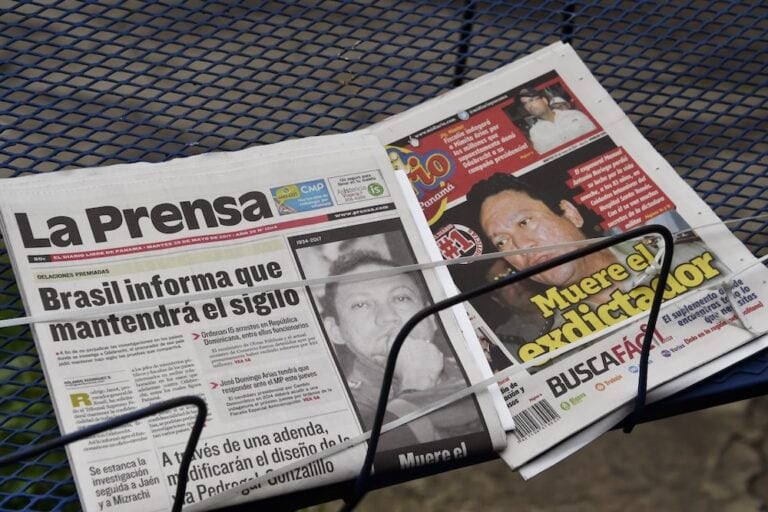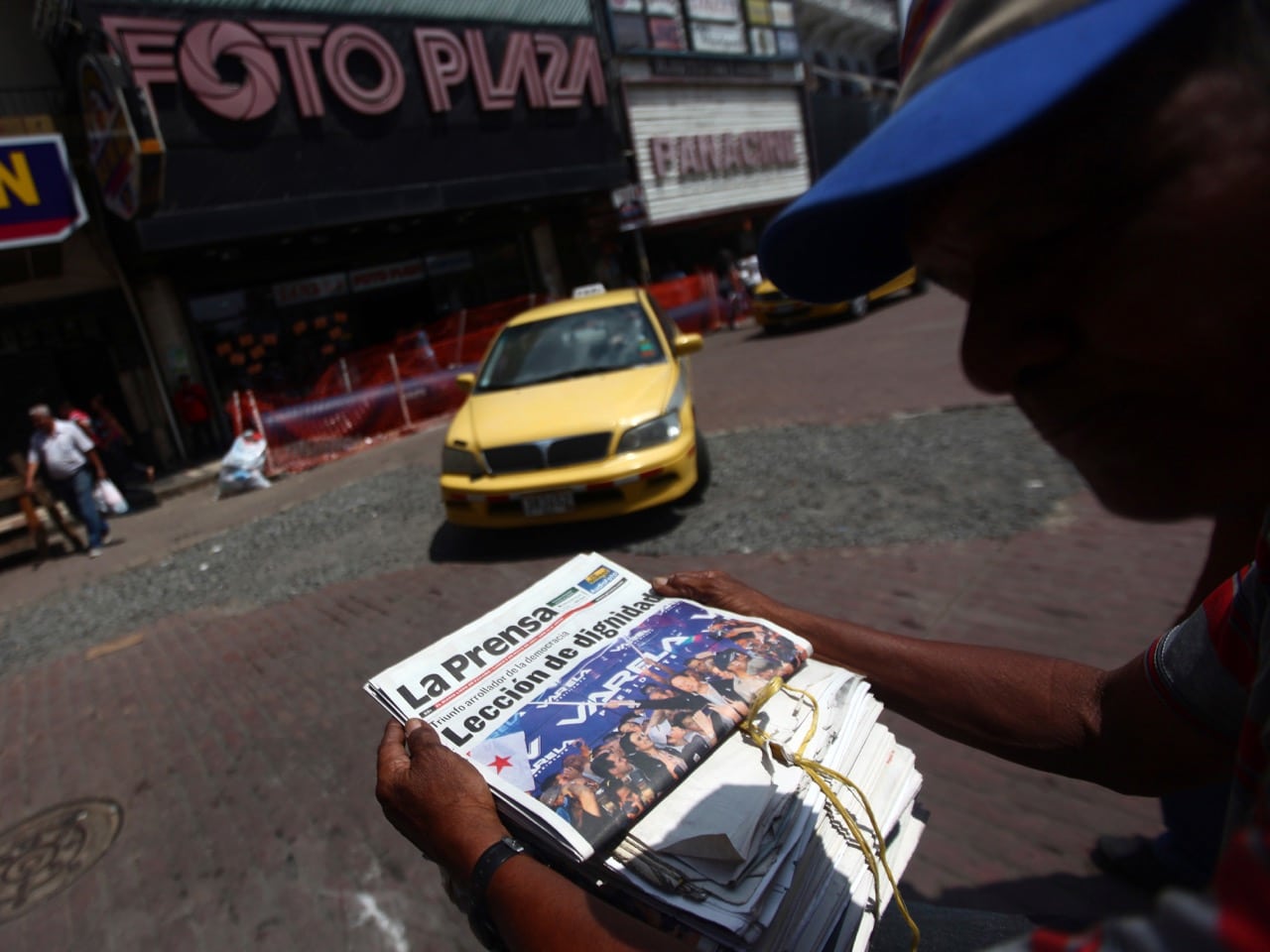(IAPA/IFEX) – The following is a 20 June 2006 IAPA press release: IAPA concerned at bid to amend Penal Code in Panama MIAMI, Florida (June 20, 2006) – The Inter American Press Association (IAPA) said today it is extremely concerned at the introduction of a draft bill to reform the Penal Code in Panama, saying […]
(IAPA/IFEX) – The following is a 20 June 2006 IAPA press release:
IAPA concerned at bid to amend Penal Code in Panama
MIAMI, Florida (June 20, 2006) – The Inter American Press Association (IAPA) said today it is extremely concerned at the introduction of a draft bill to reform the Penal Code in Panama, saying it would drastically stiffen penalties for journalists found guilty of libel or defamation – an action in sharp contrast to the progress in the area of press freedom that President Martín Torrijos has been advocating.
The proposed measure would make defamation committed in the news media an offense punishable with two to three years’ imprisonment or the equivalent in fines, and libel or slander with one to two years’ imprisonment or the equivalent in fines. This would be considerably stiffer than the penalties under the existing legislation. The IAPA said passage of the proposal would not only limit press freedom and free speech in Panama but would impact negatively in other Latin American countries that are in the process of building democracy.
The chairman of the IAPA’s Committee on Freedom of the Press and Information, Gonzalo Marroquín, expressed surprise on learning of the draft bill. “It is completely inexplicable, especially given that up to now Panama had taken decisive steps in favor of freedom of the press and unfettered access to information, among them the repeal of gag laws and the endorsement of the Declaration of Chapultepec by President Torrijos.”
Marroquín, editor of the Guatemala City, Guatemala, newspaper Prensa Libre, recalled that earlier this year the IAPA had held a forum in Panama with news media lawyers and legislators in which the Panamanian National Assembly was urged to take action to decriminalize libel and defamation, and thus align that country with inter-American common law on the matter.
“The legislative forum concluded that there was consensus on the need for more tolerance of criticism,” Marroquín added. “That is why it is counter-productive for Panamanian lawmakers to seek to enact a law that contravenes the principles of the Organization of American States and runs counter to the decriminalization that is being seen in Latin America. It would be a clear step backwards.”
The OAS Declaration of Principles of Freedom of Expression states the following:
“Privacy laws should not inhibit or restrict investigation and dissemination of information of public interest. The protection of a person’s reputation should only be guaranteed through civil sanctions in those cases in which the person offended is a public official, a public person or a private person who has voluntarily become involved in matters of public interest. In addition, in these cases, it must be proven that in disseminating the news, the social communicator had the specific intent to inflict harm, was fully aware that false news was disseminated, or acted with gross negligence in efforts to determine the truth or falsity of such news.”
Marroquín expressed sympathy for the Panamanian individual journalists, news media and press organizations that had already come out against the draft bill. “We trust that President Torrijos and the National Assembly will take these concerns very seriously, to the benefit of their country and the cause of press freedom,” he declared.


